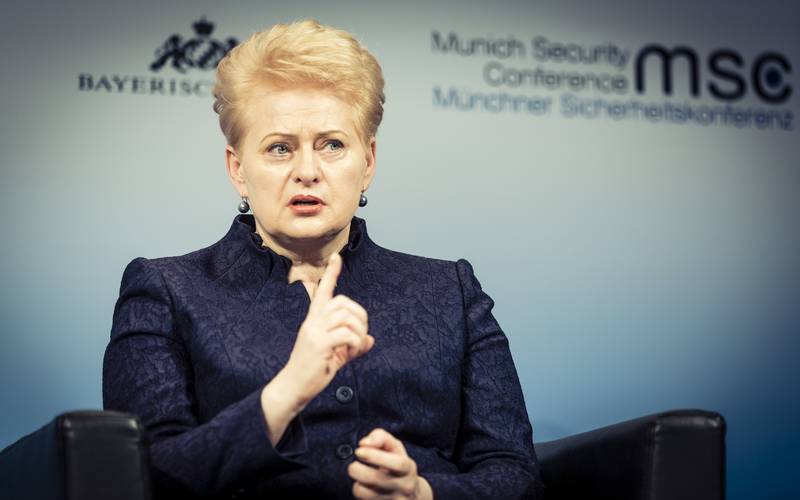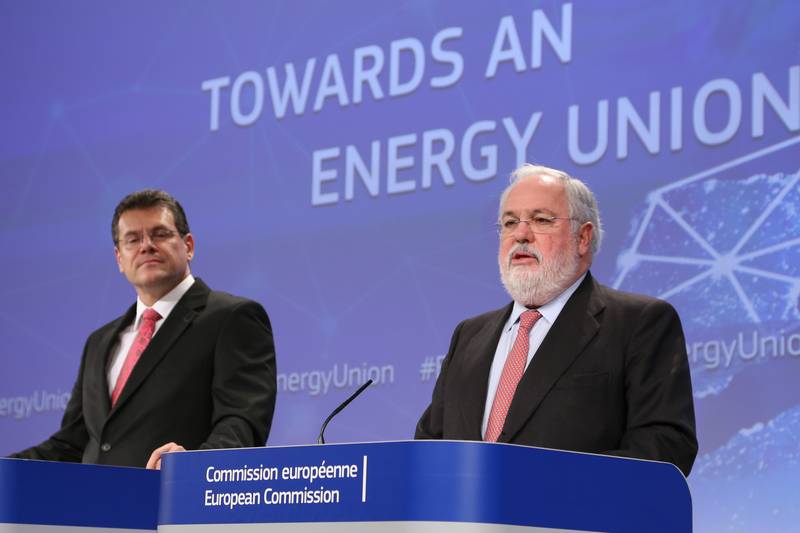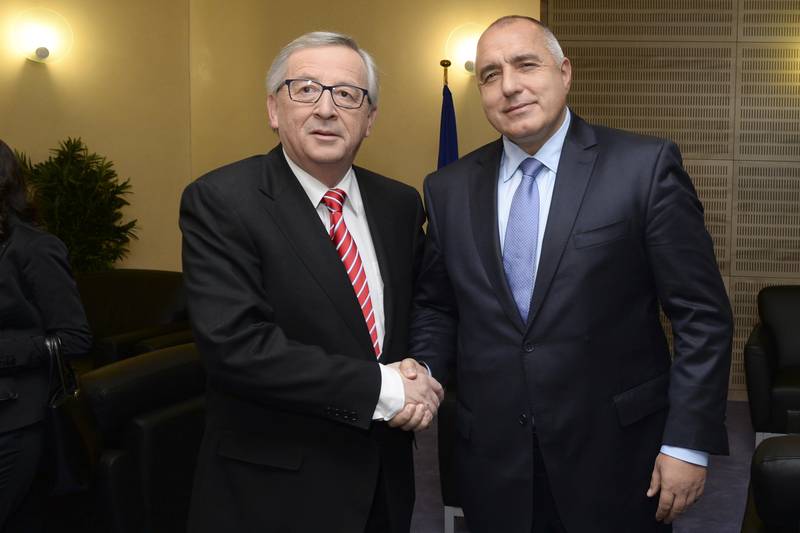European Commission: South Stream is not a European project
Ralitsa Kovacheva, November 18, 2010
 A day after Bulgaria and Russia agreed to create the joint project company South Stream-Bulgaria it turned out, that the European significance of the project, so persistently announced by Putin and Borissov, is to put it mildly - an illusory, even a kind of ironic. Because South Stream not only is not among EU priorities, but it is even in breach of European legislation. Moreover, not simply just in the details, but in its fundamental idea - Russia to build a pipe (with the participation of countries it will pass through), in order to transit gas of its own.
A day after Bulgaria and Russia agreed to create the joint project company South Stream-Bulgaria it turned out, that the European significance of the project, so persistently announced by Putin and Borissov, is to put it mildly - an illusory, even a kind of ironic. Because South Stream not only is not among EU priorities, but it is even in breach of European legislation. Moreover, not simply just in the details, but in its fundamental idea - Russia to build a pipe (with the participation of countries it will pass through), in order to transit gas of its own.
During a briefing on Saturday, Prime Ministers Borissov and Putin were persistently presenting South Stream as a European project and were convincing us that EU Energy Commissioner Gunter Oettinger had even blessed it. So euinside sent a letter to the Commissioner asking him to clarify his position.
The response of Oettinger's spokesperson - Marlene Holtzner, makes it clear that  the Commission had done what was possible in order the shareholder's agreement to be in accordance with European law. But the Intergovernmental Agreement, signed between Bulgaria and Russia in 2008, has to be changed too.
the Commission had done what was possible in order the shareholder's agreement to be in accordance with European law. But the Intergovernmental Agreement, signed between Bulgaria and Russia in 2008, has to be changed too.
The problem is that under the European law (the Third Energy Package) third parties must have access to the pipeline. While the idea of South Stream excludes the participation of third parties, because the purpose of the pipe is to transport Russian gas. In the Intergovernmental Agreement on South Stream, signed by the Government of Sergey Stanishev in 2008, it is noted that "the Bulgarian government will assure full and unrestricted transit" [of Russia], Oettinger's spokesperson - Marlene Holtzner said. This is in contradiction with the principle of “third party access” and we would like to see it stated very clearly that other companies can also use this pipeline, Marlene Holtzner underlined, in response to journalists' questions at the regular Commission briefing in Brussels.
"At their invitation the European Commission advised the Bulgarian government and provided assistance in the negotiations with the Russians regarding the shareholder agreement on South Stream. Important changes to align the SA with EU legislation were made following these negotiations. The agreement signed included these amendments”, Ms Holtzner wrote to euinside.
In the shareholders' agreement, before the intervention of the Commission, it was mentioned that "shareholders would have the full capacity available for the transportation”. Here was included a sentence that this would also apply to "any gas transportation arrangements between the company and any other shipper", Ms Holtzner explained.
According to her, the use of the pipeline is not a question that shareholders could decide bilaterally. "If the shareholders of South Stream want to have X per cent of capacity for them and for them on their own, they have to make a request which has to be send to the national regulator and it has to be approved by us [the European Commission]”.
 It is curious how the previous government had signed the Intergovernmental Agreement at all, provided that it is contrary to EU rules. Marlene Holtzner gave the example of Poland, which at the same time had to sign a similar agreement. Warsaw, however, unlike Sofia, kindly asked Brussels to look at the document before it was signed.
It is curious how the previous government had signed the Intergovernmental Agreement at all, provided that it is contrary to EU rules. Marlene Holtzner gave the example of Poland, which at the same time had to sign a similar agreement. Warsaw, however, unlike Sofia, kindly asked Brussels to look at the document before it was signed.
In the case of Bulgaria, the Commission had learned from the press that there might be things that are not in line with European legislation in the agreement with Russia. In April the Commission has sent a letter to the Bulgarian Government with questions, which had never been answered.
As you remember, 2008 was the worst year for the relations between Sofia and Brussels - then the country received the most critical Commission’s report on the CVM and a devastating OLAF report about abuses with EU funds. The result - a huge amount of European funding, intended for Bulgaria, was frozen indefinitely.
Anyway, the Commission then decided that the necessary amendments regarding “third party access” could be written in the shareholders agreement, so that it could comply with European legislation. This is what has happened on Saturday. The Intergovernmental Agreement, however, still must be amended and Bulgarian authorities have assured the Commission that these changes will be made.
It is curious how this will happen, given Russia's idea to build a pipeline to transport gas of its own and not infrastructure that could be used by all potential users. It was not an accident that on Saturday Mr Putin was highly critical of the European energy policy and especially of the Third Energy Package. He threatened European energy market with a delay in infrastructure development and high prices, if Gazprom's access to the market was limited in some way.
As to the "European project" South Stream, the position of the European Commission remains unchanged: "South Stream is a very important project, but in comparison to Nabucco, it does not offer a diversification of gas resources, it is just a new transit route.”
Asked by euinside if there were new circumstances, which could allow the project to become part of the Trans-European Energy Network (TEN-E), therefore giving grounds the project to be called “European” and to get funding, the Commission replied unequivocally:
"The European Commission is obliged to stick to the existing TEN-E Guidelines of 6 September 2006. South Stream is not included in the 2006 TEN-E decision and the Commission has no intension to change the current and existing TEN-E decision."
It is another question whether, if the necessary changes in the Bulgarian- Russian agreement are made, Commission's attitude would change. The fact is that South Stream does not provide diversification of the source, but only of the route. A fact is also, however, that the project involves other EU countries too - Italy (Eni is the main Gazprom partner in the project), Austria, Greece, Slovenia, Hungary. Apparently they, unlike Bulgaria, had brought their agreements in line with European law.
Russian agreement are made, Commission's attitude would change. The fact is that South Stream does not provide diversification of the source, but only of the route. A fact is also, however, that the project involves other EU countries too - Italy (Eni is the main Gazprom partner in the project), Austria, Greece, Slovenia, Hungary. Apparently they, unlike Bulgaria, had brought their agreements in line with European law.
If Sofia would also do this, the project may rely on a more favourable attitude by the Commission, like the other big Russian project Nord Stream. The new proposals for TEN-E financing for the period 2014-2020 have already been announced by the Commission. The legislative proposal on this will be published next year as part of the new financial framework 2014-2020.
So at this stage neither Borissov, nor Putin have any reason to determine South Stream as a European project but rather as part of the "Grand Slam" of President Georgi Parvanov (along with the oil pipeline Burgas-Alexandroupolis and Belene NPP), South Stream is rather a political demonstration against Bulgaria’s full  EU membership and a violation of European law. And if Stanishev's cabinet could afford and even sought such unprecedented insolence, the current cabinet of Borissov cannot.
EU membership and a violation of European law. And if Stanishev's cabinet could afford and even sought such unprecedented insolence, the current cabinet of Borissov cannot.
So when Borissov goes to Moscow to see how the puppy he gave to Putin is doing, the Bulgarian Prime Minister must carry in his pocket the necessary changes in the Intergovernmental Agreement. He has to convince Putin that this is the only chance this project to happen. And the only chance for Bulgaria to be a member state of the EU in the full sense of the word.
 Dalia Grybauskaite | © MSC/Koerner
Dalia Grybauskaite | © MSC/Koerner Maros Sefcovic, Miguel Arias Canete | © European Commission
Maros Sefcovic, Miguel Arias Canete | © European Commission Jean-Claude Juncker, Boyko Borissov | © European Commission
Jean-Claude Juncker, Boyko Borissov | © European Commission